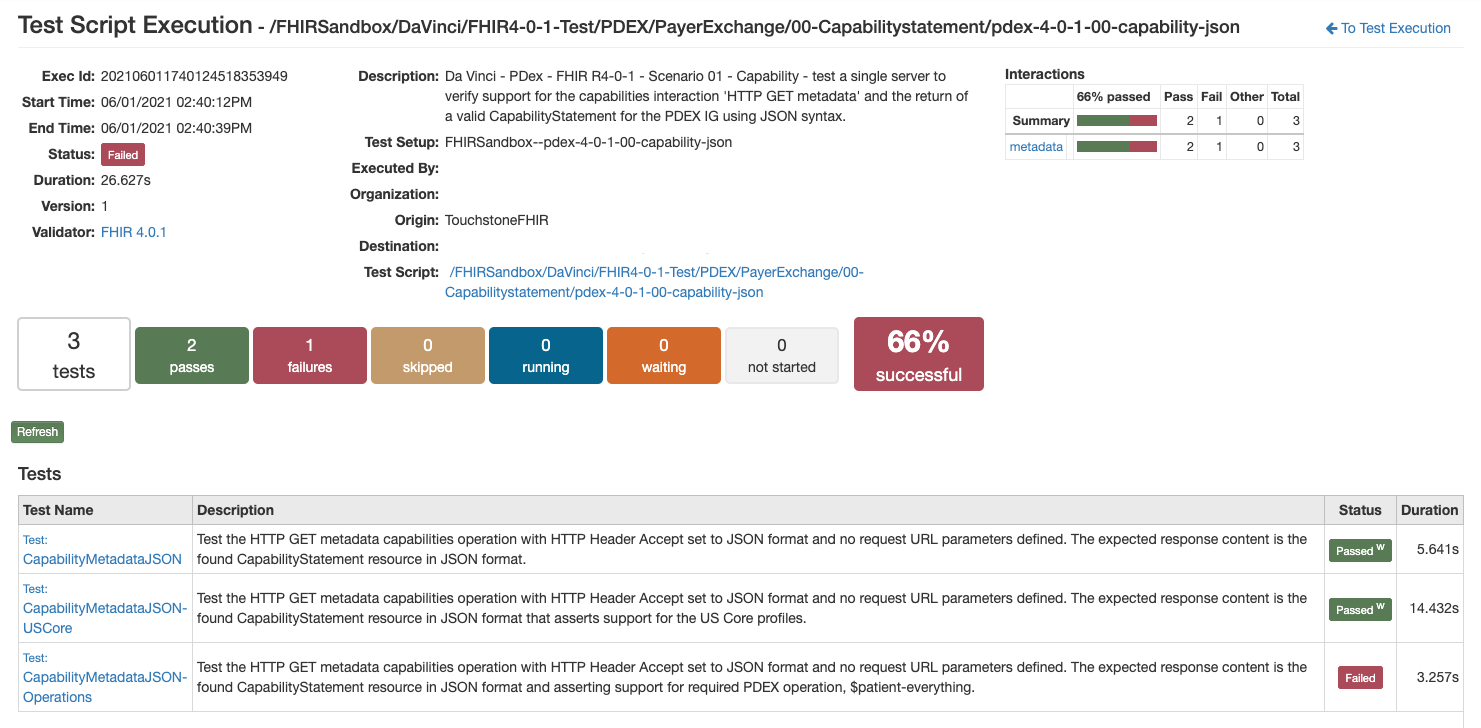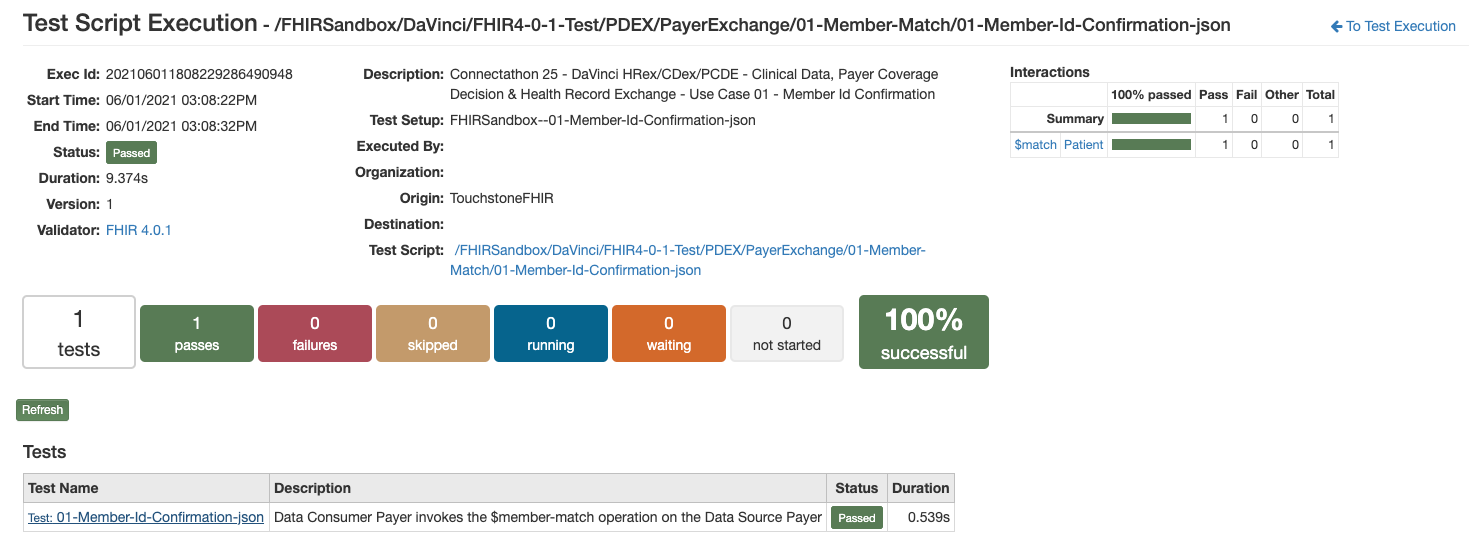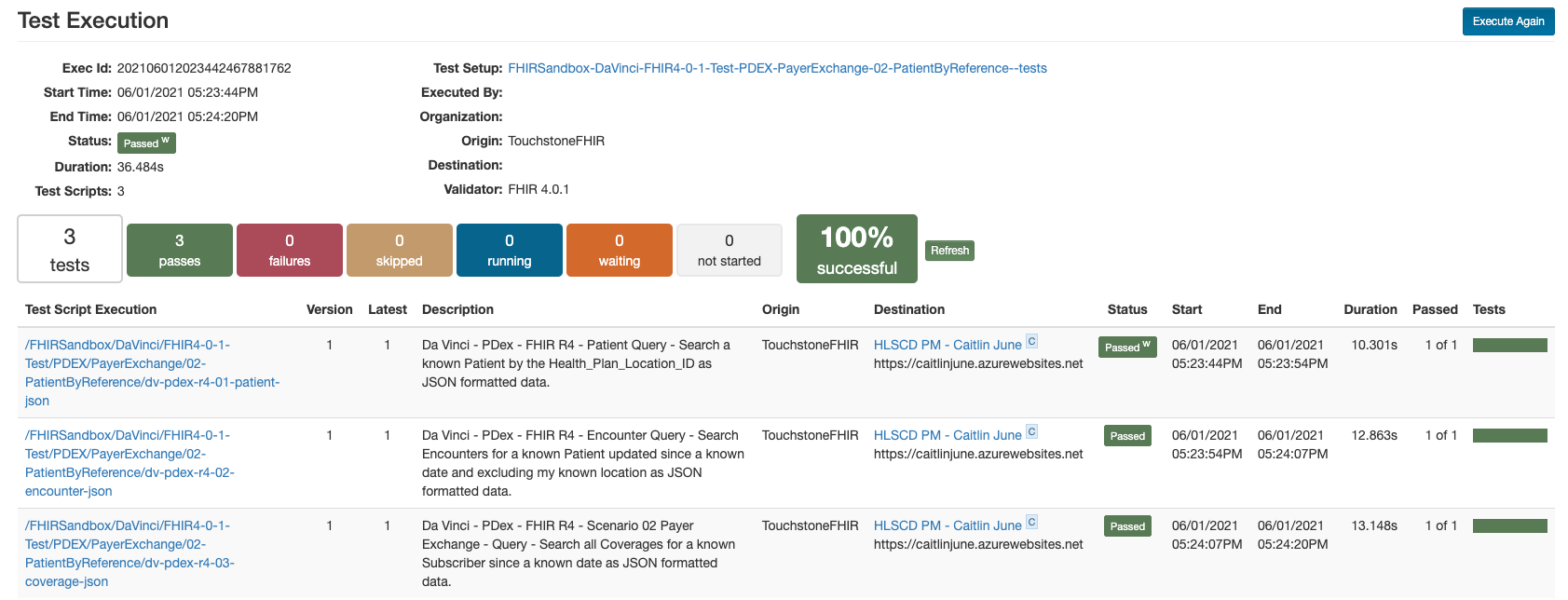Da Vinci PDex for Azure API for FHIR
In this tutorial, we walk through setting up Azure API for FHIR® to pass the Touchstone tests for the Da Vinci Payer Data Exchange Implementation Guide (PDex IG).
Note
Azure API for FHIR only supports JSON. The Microsoft open-source FHIR server supports both JSON and XML, and in open-source you can use the _format parameter to view the XML capability statement: GET {fhirurl}/metadata?_format=xml
Touchstone capability statement
The first set of tests that we focus on is testing Azure API for FHIR against the PDex IG capability statement, which includes three tests.
The first test validates the basic capability statement against the IG requirements and will pass without any updates.
The second test validates all the profiles have been added for US Core. This test passes without updates but includes several warnings. To remove these warnings, you need to load the US Core profiles. We've created a sample HTTP file that walks through creating all the profiles. You can also get the profiles from the HL7 site directly, which will have the most current versions.
The third test validates that the $patient-everything operation is supported.

Touchstone $member-match test
The second test in the Payer Data Exchange section tests the existence of the $member-match operation. You can read more about the $member-match operation in our $member-match operation overview.
In this test, you need to load some sample data for the test to pass. We have a rest file with the patient and coverage linked that you'll need for the test here. Once this data is loaded, you'll be able to successfully pass this test. If the data isn't loaded, you receive a 422 response due to not finding an exact match.

Touchstone patient by reference
The next tests we review are the patient by reference tests. This set of tests validates that you can find a patient based on various search criteria. The best way to test the patient by reference will be to test against your own data, but we've uploaded a sample resource file that you can load to use as well.

Touchstone patient/$everything test
The final test we walk through is testing patient-everything. For this test, you need to load a patient, and then you use that patient’s ID to test that you can use the $everything operation to pull all data related to the patient.

Next steps
In this tutorial, we walked through how to pass the Payer Exchange tests in Touchstone. Next, you can learn how to test the Da Vinci PDEX Payer Network (Plan-Net) Implementation Guide.
Note
FHIR® is a registered trademark of HL7 and is used with the permission of HL7.